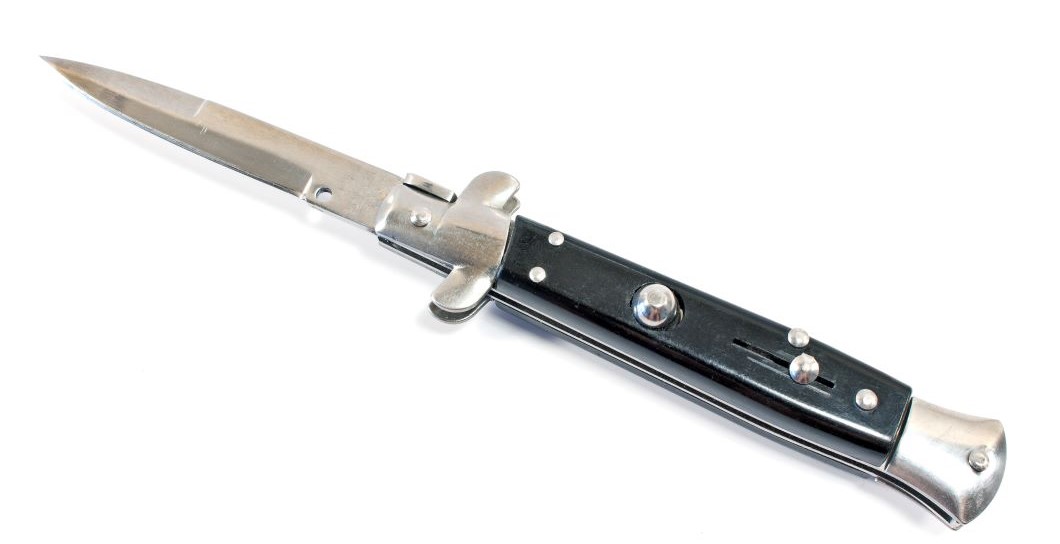
By Dave Workman
Editor-in-Chief
While a federal judge in California ruled last Friday that switchblade knives are not protected by the Second Amendment, the Massachusetts Supreme Judicial Court on Tuesday said exactly the opposite in a ruling which nullified the Bay State law banning such knives and stunned many Second Amendment activists.
Doug Ritter at Knife Rights, Inc., told TGM the Massachusetts ruling is “a huge win for the Second Amendment in the most anti-Second Amendment state in the nation.” He further posited that the “polar opposite” rulings could take the debate over “arms” protected by the Second Amendment to a new level. Knife Rights submitted an amicus brief in the case, Ritter said.
According to the San Diego Union Tribune, U.S. District Judge James Simmons handed down the California decision. His ruling was quickly hailed by California Attorney General Rob Bonta in a prepared statement.
“We are pleased with the court’s decision to uphold California’s laws restricting switchblade knives,” Bonta said. “We will continue to vigorously defend commonsense laws that keep our communities safer.”
Ritter said the California ruling was “not unexpected.”

However, he was pleasantly stunned by the Massachusetts high court decision. The Boston Globe is reporting that the unanimous ruling, authored by Justice Serge Georges Jr., said the state switchblade ban adopted in 1957 could not withstand Second Amendment rulings by the U.S. Supreme Court.
“Although swords and daggers were the most common bladed weapons, Seventeenth and Eighteenth Century Americans also carried smaller knives with three to four inch blades that were used for self-defense, hunting, and trapping,” Justice Georges observed in his ruling. “Of the many varieties of knives, the folding pocketknife played an important role, both as a tool and a weapon.”
He further observed “the Commonwealth has not met its burden of demonstrating a historical tradition justifying the regulation of switchblade knives under (the law).” The judge said switchblades do meet the “common use” test.
Acknowledging Massachusetts lawmakers have been ratcheting down on the rights of gun owners in the state, Ritter observed, “You’ve got to separate what the Massachusetts Supreme Judicial Court does and what the legislature does.”
Ritter may not be far off in his assessment that the Massachusetts ruling is a major victory for Second Amendment advocates because it serves as a reminder that the “arms” protected by the amendment are not just limited to guns. That much seemed to be at the heart of Judge Georges’ ruling, as noted above.
When the Second Amendment was ratified in 1791, “arms” included not only swords and knives, but also hatchets (aka tomahawks) and other weapons which were commonly owned and carried, especially in frontier settlements.

Jim Wallace, executive director of the Massachusetts Gun Owners Action League (GOAL), called the ruling “a great decision,” and that language in the decision “left a huge opening” for potential challenge of state laws.
In Judge Georges’ ruling he says, “we conclude switchblades are not ‘dangerous and unusual’ weapons falling outside the protection of the Second Amendment.
“In the most basic sense,” he writes, “all weapons are ‘dangerous’ because they are designed for the purpose of bodily assault or defense…As such, general dangerousness of a weapon is irrelevant where the weapon belongs to a class of arms commonly used for self-defense. Consequently, spring-loaded folding knives cannot be categorically prohibited just because they are, in everyday terms, ‘dangerous.’ At the very least, for purposes of this analysis, ‘dangerous’ weapons must feature uniquely dangerous qualities that are disproportionate to their use for self-defense.”
And several lines later, then judge adds, “Certainly, like handguns, switchblade knives are particularly suitable for self-defense because they are ‘readily accessible . . . cannot easily be redirected or wrestled away . . . [are] eas[y] to use . . . [and] can be [held] with one hand while the other hand’ uses a phone to summon help.”
As noted by the Commonwealth Beacon, the Massachusetts high court got smacked down a few years ago by the U.S. Supreme Court dealing with a ban on stun guns. The Supreme Court nullified the state ban.
That case is known as Caetano v. Massachusetts. In that case, according to a summary at Justia, the Supreme Court held, “the Second Amendment extends, prima facie, to all instruments that constitute bearable arms, even those that were not in existence at the time of the founding.”
“The legal scope of a right to bear arms,” the Commonwealth Beacon acknowledged, “has expanded substantially since the US Supreme Court’s 2008 District of Columbia v. Heller ruling that the Constitution protects an individual right to possess and use a firearm for traditionally lawful purposes, such as self-defense within the home.”
Meanwhile, back out in California, Ritter told the Union Tribune the federal court ruling was off-base.
“To conclude that a knife is not an ‘arm’ under the Second Amendment is a little crazy,” he reportedly told the newspaper, an opinion he essentially reiterated to TGM.
An attorney representing Knife Rights told the newspaper the organization and other plaintiffs will appeal the Simmons ruling.



